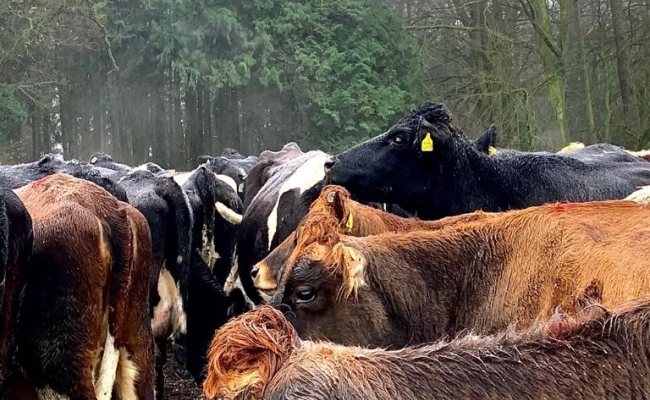Animal welfare & The Environment
Whilst there’s a lot of talk on social media and in the news about the environmental benefits of becoming vegan, there is also some untruths floating around too.
It is all too common for plant based food product companies to overstated the carbon emissions of farming animals. Whilst we understand that a huge proportion of people are concerned about the environmental impacts of their diet, we also believe that people choices are complex and shouldn’t be reduced to a divisive yes/no to meat and animal products. Consumers should also be able to make an informed choice, based on facts.
Firstly, its not our place to tell you what to eat. If you want to eat red meat every day, that is up to you. Your GP will probably want to have words with you but that’s up to them, not us as farmers. Secondly, your decisions on what to eat will be based on your circumstances, budget, family situation and personal preferences as well as your moral and ethical decisions. We wouldn’t tell someone on a vegan diet that they are wrong and we believe that giving someone the right to chose goes both ways.
Most importantly, we want you all to know that buying organic meat and dairy products is the most sustainable way to buy animal farmed foods. If you buy local from a farm like ours, then you’re reducing the food miles, supporting a local business and you will be buying food with the highest animal welfare standards in this country. (Which, if you are interested, has the highest animal welfare standards in the world. If you’ve ever wondered why there are no captive whales or dolphins in the UK; its due to animal welfare!)
Honestly, we could talk to hours on why farming with animals is important (we wouldn’t have been able to increase the health of our soil without grazing animals), on why farming crops isn’t suitable on all farmland (those steep hilled sheep farmers wouldn’t manage it) and why imported plant based food isn’t always as green as the suppliers would like to make out, but we’re not going to. The wildlife trusts survey our farmland and are always amazed with the diversity of species we support here and we feel that shows far more about our impact than the amount of methane our cows emit.
Want to know more about our farming methods? Check out this article about regenerative agriculture.

